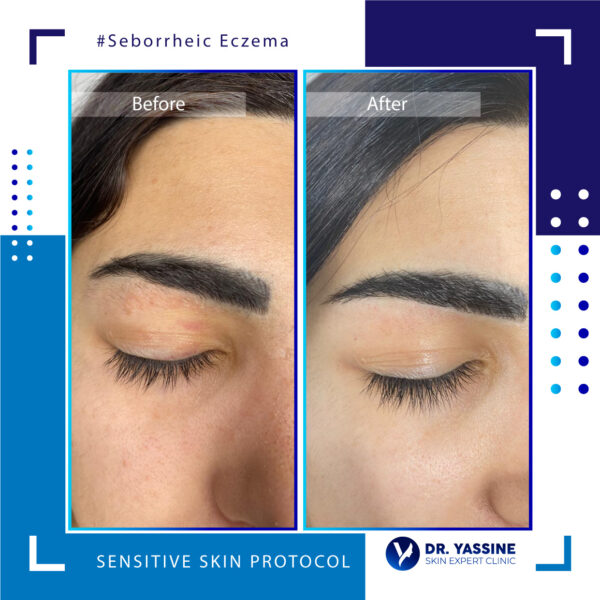1. What is seborrheic dermatitis?
As the name suggests, seborrheic dermatitis is a dermatologic complaint that makes the skin look red, itchy, and inflamed. It appears mainly on oily (sebaceous) areas of the skin, such as the face, scalp, and center of the chest. Although it is very common, some people can’t tell they have seborrheic dermatitis. Besides, it can affect people of all ages such as teens any time after puberty and, less commonly, babies in the scalp and nappy area.
2. What causes seborrheic dermatitis?
Dermatologists believe that the cause of seborrheic dermatitis is either an overgrowth of a harmless yeast called Malassezia or an overreaction of the skin immune system to it. This condition – that is mainly triggered by stress, tiredness, and cold weather – is not associated with any disease but it can be resistant in people with HIV infection and it is common in people with Parkinson’s disease.
3. How is it treated?
The treatments are usually creams and shampoos that work on reducing the level of skin yeast. Other options are mild steroid creams in case of irritation or the newer non-steroid anti-inflammatory eczema creams (calcineurin inhibitors) that, although not licensed for this condition, proved to be efficient.
4. Is it hereditary?
No, it is not hereditary. Instead, it is the result of an immune reaction of your skin.
5. Can it be cured?
Although there is no absolute cure for seborrheic dermatitis, the right treatment may lead to improvement and sometimes clearance of the condition. For this reason, our recommendation at Skin Expert Clinic is to follow a healthy lifestyle and practice stress-relieving exercises and habits.
6. How is the treatment used?
The treatment period depends on the affected areas of the body and the presence of irritation, but it is often needed on a long-term basis. At Skin Expert Clinic, Dr. Yassine effectively controls seborrheic dermatitis by combining various treatments that include creams, shampoos, and pills.
7. What can I do to prevent the flares of seborrheic dermatitis?
Using an anti-fungal shampoo once a week even after your scalp is essential to prevent the rash from coming back. Unlike diet changes that don’t affect seborrheic dermatitis, Dr. Yassine suggests using a plain moisturizer to help reduce scaling and redness of the skin.
For healthy-looking skin, visit our top dermatologic clinic in Beirut, Lebanon!

